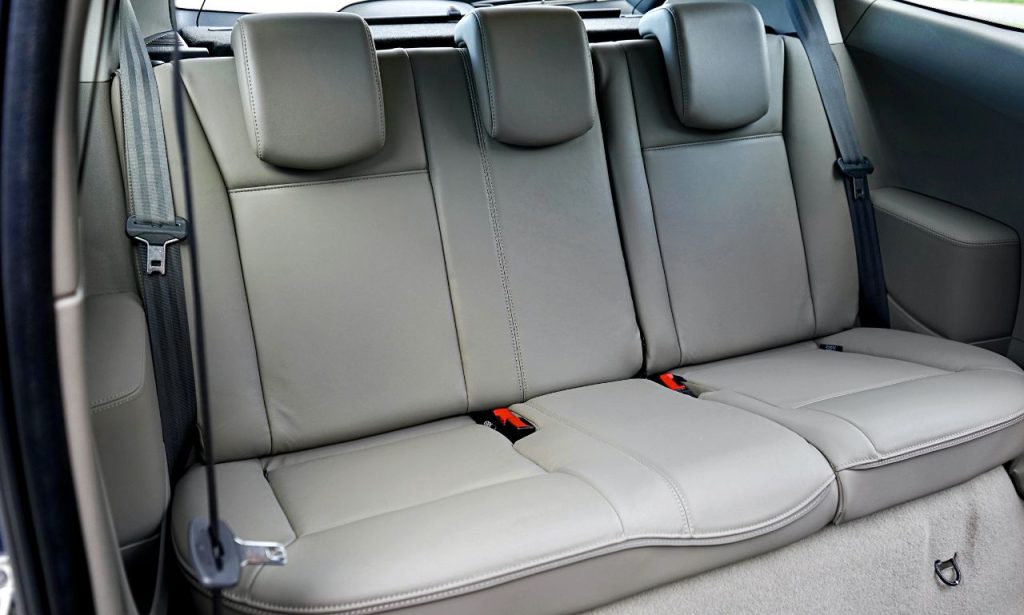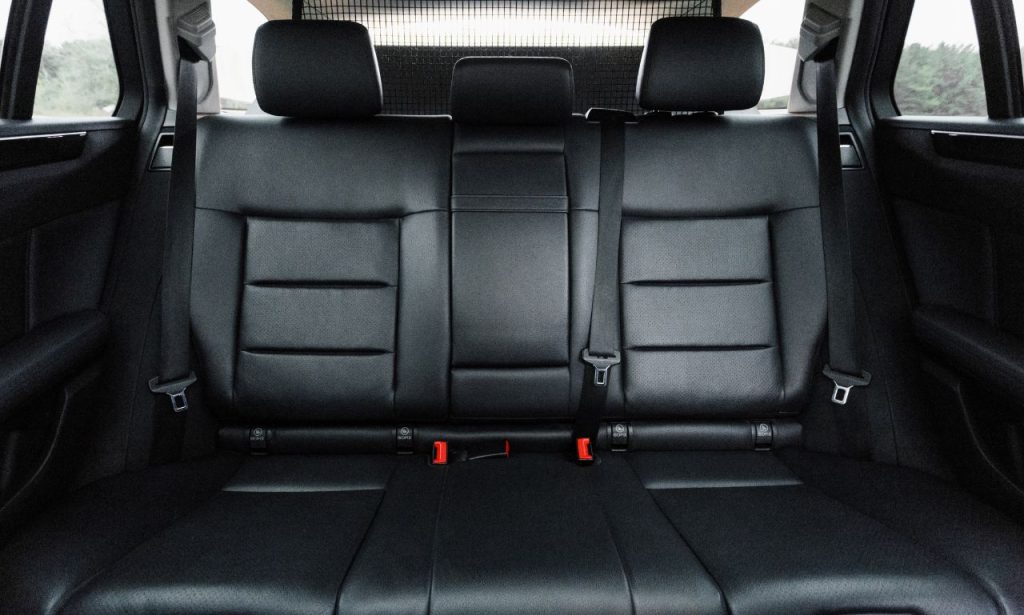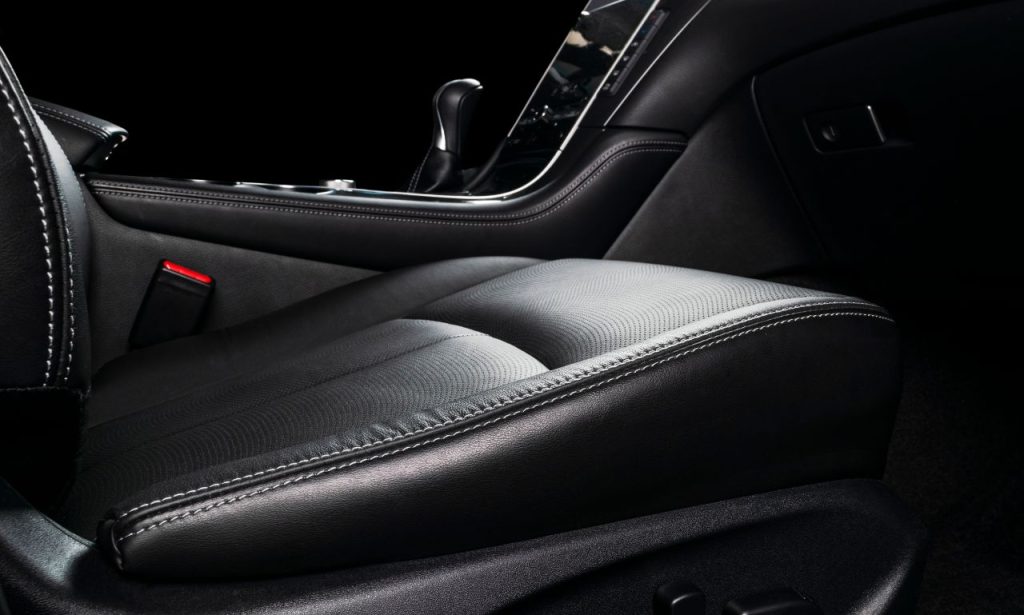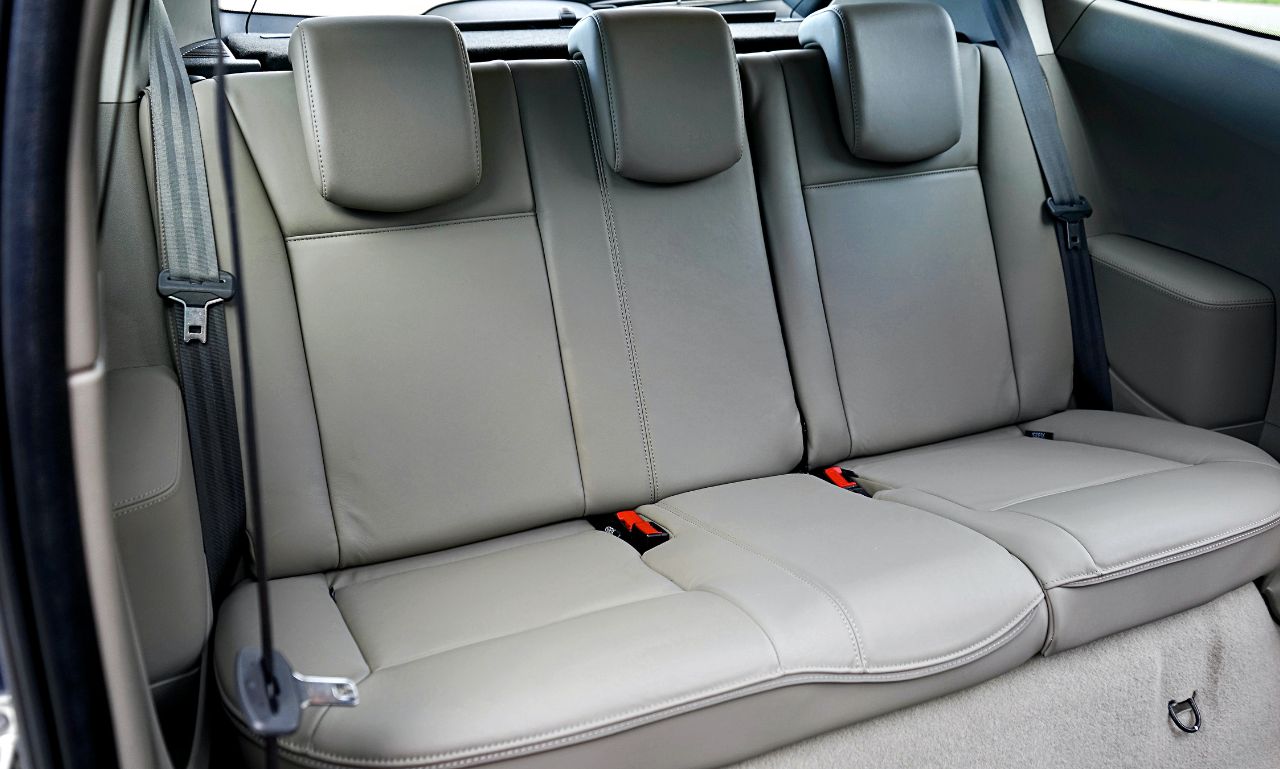Keeping your vinyl car seats spotless is like driving with a brand-new interior—fresh, shiny, and welcoming. The secret to maintaining that squeaky clean look? A bit of consistency, the right tools, and some know-how. Let’s dive in and make your vinyl seats look pristine, step by step.
Vinyl car seats are known for their durability, sleek look, and easy maintenance. However, over time, they can accumulate dirt, grime, and stains, which can make them look dull and worn out. Learning how to clean vinyl car seats effectively will not only keep your car’s interior looking great but also extend the life of the seats. This guide will take you through all the steps and best practices to ensure your vinyl car seats stay in top-notch condition.
Gather Essential Cleaning Supplies
Cleaning vinyl car seats doesn’t have to be a chore when you’ve got the right supplies on hand:
- Soft cloths or microfiber cloth: To avoid scratching.
- Bucket of water: Warm water is ideal for dissolving grime.
- Mild cleaning solution: Dish soap works wonders here.
- Vinyl-specific cleaner: Designed specifically for deep cleaning vinyl.
- Soft brush: For dealing with stubborn stains.
- Vacuum cleaner: To get rid of loose dirt and crumbs.
- Spray bottle: To create a cleaning mixture.
- Dry towel: To wipe everything dry.
These simple items make the cleaning process effective and gentle—exactly what your vinyl seats need.
Remove Personal Items from the Seats

Before anything else, remove everything from your car seats. This means keys, papers, and that old fast-food napkin hiding in the back. Clearing the space makes the cleaning process smoother and ensures nothing gets in the way.
Removing personal items from the seats also prevents any potential damage that could occur during the cleaning process. Items like coins, pens, or even phone chargers can create scratches if not removed before cleaning.
Vacuum the Vinyl Seats Thoroughly
Why Vacuuming First is Important
The first crucial step is to vacuum thoroughly. Loose dirt can be a real enemy here—grit particles are like micro-sandpaper that can scratch the vinyl surface.
- Use a soft-bristled attachment: This avoids causing scratches.
- Focus on seams and crevices: Crumbs and dirt love to hide there.
- Do a second pass if necessary: Especially if the seats haven’t been cleaned in a while.
Taking a bit of extra time here sets you up for a cleaner, shinier finish. Vacuuming helps to remove any loose dirt or debris that could scratch the vinyl during the cleaning process. This step is especially important if your vinyl seats are heavily soiled or if you frequently transport kids or pets.
Identify and Treat Specific Stains
Different Stains, Different Tactics
Not all stains are created equal. Whether it’s coffee, food, or ink, treating stains specifically makes all the difference.
- For food stains: Use a mild dish soap solution and gently scrub with a soft cloth.
- Ink stains: Dab with a little bit of rubbing alcohol using a cotton ball. Don’t rub—just blot.
- Grease stains: A bit of water and baking soda can help absorb and lift grease away.
- Dirt in suspension: Mix vinegar and warm water for effective spot cleaning.
Remember to test any treatment on a small, hidden spot to ensure it won’t discolor your vinyl. Treating specific stains right away is crucial for keeping vinyl car seats clean and free of discoloration. The longer a stain sits on the vinyl, the more difficult it becomes to remove.
Use a Safe, Diluted Soap Solution for Cleaning
Making the Perfect Vinyl Seat Cleaning Mixture
You don’t need fancy cleaners for regular cleaning—a mix of mild dish soap and warm water will do the trick.
- Prepare a soap solution: A few tablespoons of water and a couple of drops of soap work well.
- Spray lightly: Mist your vinyl seats without soaking them.
- Wipe with a damp cloth: Make sure it’s damp, not dripping.
- Rinse with clean water: Remove any soap residue to avoid stickiness.
This gentle approach maintains the finish and keeps the vinyl clean without drying it out. Cleaning vinyl car seats with a soap solution helps to lift dirt without damaging the surface. The key is to avoid soaking the seats, as too much water can seep into the seams and cause issues.
Choose Vinyl-Specific Cleaning Products
Why Vinyl Cleaners Are Worth It
General-purpose cleaners may do more harm than good—vinyl-specific cleaning products are the way to go when you’re serious about preserving the life of your car seats.
- Vinyl cleaners like SubLime Clean and Vinyl Revival: These products are made to lift dirt and grime without harsh chemicals.
- All-purpose cleaner: Make sure it’s labeled safe for vinyl.
- UV protection: Some cleaners also provide a layer of UV protection to shield from sun damage.
Always follow the manufacturer’s instructions to avoid damaging the vinyl upholstery material. Vinyl-specific cleaners are designed to work with the properties of vinyl, ensuring effective cleaning without drying or cracking the material. Many of these products also come with added UV protection, which is vital for maintaining vinyl car seats.
Employ Soft Cloths to Avoid Scratches

The Best Tools for the Job
Vinyl can scratch easily if you’re not careful. The key to keeping your vinyl car seats clean is using the right tools that won’t cause scratches or damage.
- Soft-bristled brush: Perfect for scrubbing away ingrained dirt without being too aggressive.
- Microfiber cloth: These are highly absorbent and gentle on surfaces.
- Avoid abrasive cleaning implements: No steel wool or scrubbing pads—they’ll leave ugly marks.
When cleaning vinyl car seats, always use a soft cloth or microfiber cloth to avoid causing scratches. Hard bristles or abrasive materials can damage the vinyl, leading to visible imperfections. If your vinyl seats are dirty, using a soft-bristled brush helps to scrub without harming the surface.
Avoid Harsh Chemicals like Bleach and Ammonia
What to Avoid and Why
You might be tempted to go heavy-duty with your cleaning, but avoid harsh chemicals like bleach or ammonia at all costs. They can cause:
- Fading: Removing the color from your vinyl.
- Cracking: Drying out the material and making it brittle.
- Discoloration: Damaging the seat beyond repair.
Stick with gentle, non-toxic solutions—your vinyl will thank you for it. Using harsh chemicals can cause irreversible damage to vinyl seats. Instead, stick to cleaners specifically formulated for vinyl, which provide effective cleaning without the risk of harm.
Create an Effective Cleaning Mixture for Tough Stains
Fighting Stubborn Dirt
For those really tough stains, an effective DIY cleaning mixture is key.
- Baking soda and lemon juice: Mix into a paste for greasy stains.
- Vinegar and warm water: For general grime, this combo helps lift dirt without being abrasive.
- Use a nylon bristle brush: Gentle enough to lift stains without scratching.
Apply the mixture to the stained area, scrub in a circular motion, and rinse thoroughly with fresh water. Cleaning tough stains from vinyl car seats requires a bit of extra effort, but using safe, gentle ingredients like baking soda or vinegar can be incredibly effective.
Regular Maintenance Tips for Vinyl Seats
Keeping Vinyl Seats Clean for the Long Haul
Regular cleaning and maintenance are crucial if you want to keep your vinyl car seats in top condition. Learning how to clean vinyl car seats regularly helps to avoid the buildup of dirt, grime, and stains that can dull the seats over time.
- Wipe down weekly: Use a damp cloth to remove dust and dirt buildup.
- Avoid parking in direct sunlight: The sun’s UV rays can damage vinyl, leading to cracking and fading.
- Apply a protective conditioner: Using a high-quality leather conditioner or vinyl protector helps keep seats supple.
- Cover with seat covers: Especially if you live in a hot climate or park outside often.
Routine care means fewer deep cleaning sessions and longer-lasting beauty for your vinyl. Vinyl car seats benefit greatly from regular cleaning. A quick wipe-down every week helps prevent dust and grime buildup, making future cleaning efforts much easier.
How to Prevent Future Damage to Vinyl Upholstery

Tips for Avoiding Wear and Tear
- Limit exposure to the sun: UV protection sprays are a good idea, but if you can, park in the shade.
- Use protective products: Products like Scotchgard Auto Fabric & Carpet Water Shield can provide a durable barrier against stains.
- Clean up spills immediately: The longer something sits on vinyl, the more damage it can do.
- Avoid sharp objects: Things like car keys or tools can puncture vinyl seats, so be cautious.
- Use a steam cleaner carefully: While some use it for deep cleaning, improper use of a steam cleaner can cause damage. Only use at a safe temperature.
A little caution can help your vinyl seats look amazing for years to come. Preventing damage to vinyl car seats is often easier than trying to fix issues later on. Using protective products and avoiding direct sunlight can significantly increase the lifespan of your vinyl.
Conclusion
Cleaning vinyl car seats doesn’t have to be a dreaded task. With the right tools, consistent maintenance, and a few protective measures, your seats can stay looking brand new. Learning how to clean vinyl car seats is about having the right approach, the right tools, and making maintenance a habit. Keeping your vinyl upholstery fresh and protected will pay off every time you get in and enjoy that polished, welcoming interior.
ALSO READ: Why Are My Car Windows Fogging Up Inside?
FAQs
Ideally, clean your vinyl seats once a month for maintenance, and do spot cleaning as necessary. This frequency keeps your seats in great shape without over-cleaning.
Vinyl-specific cleaners like SubLime Clean and Vinyl Revival are excellent. Always choose products with UV protection to avoid sun damage.
Yes, but it’s best to use soapy water or a diluted cleaning solution for effective grime removal. Plain water can help for dust, but a mild cleaner gets better results.
It can be, but you need to be cautious. Use on a low setting and avoid overdoing it. Too much heat can warp and damage the vinyl.
